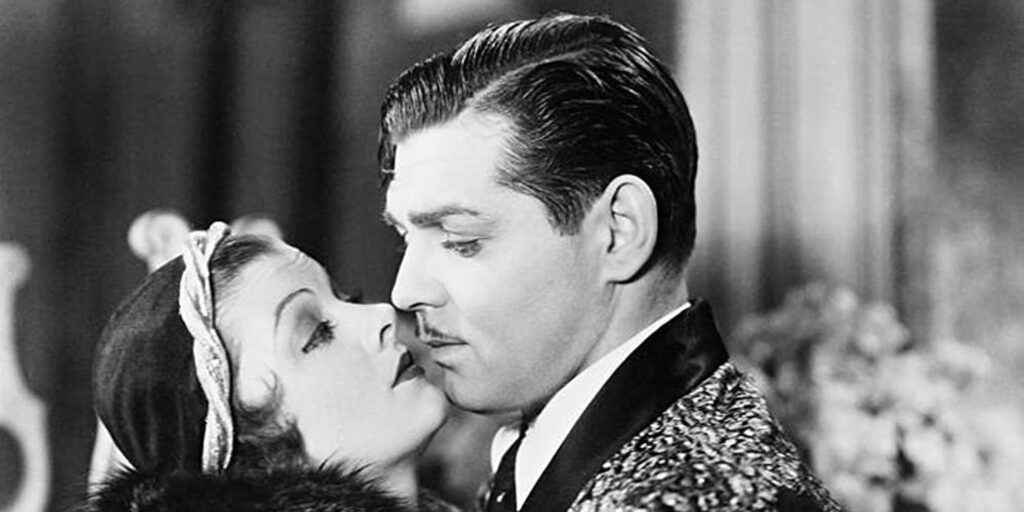Note: This review was written during the 2023 WGA and SAG-AFTRA strikes. Without the labor of the writers and actors currently on strike, the film being covered here wouldn’t exist.
Christopher Nolan has been grappling with the cold tyranny of technological innovation since The Prestige (2006), which is as much about the search for awe in a sterile, godless world as it is about a rivalry between Victorian stage illusionists. The writer-director’s subsequent features – particularly The Dark Knight (2008), Interstellar (2014), and Tenet (2020) – have often examined how our heedless urge to innovate inevitably collides with our responsibility to future generations, sometimes in ways that are difficult to predict. Yet despite his popular perception as a cold, calculating filmmaker, Nolan’s works have always betrayed a certain optimism, a faith in humanity’s collective bravery and fortitude. Dunkirk (2017) offers perhaps the clearest expression of this idealism, illustrating how sweeping historiographic narratives of heroism are built from innumerable individual actions. (Even if many of those actions occur in a mad, half-blind scramble for survival with little thought beyond “Oh fuck, keep swimming or you’ll drown.”)
Nolan’s highly anticipated new biopic, Oppenheimer, plays like an ashen, jittery companion piece to Dunkirk, a case study in how even the so-called Great Men of History lack the courage to stop modernity’s slouching march towards Armageddon. It is the filmmaker’s most pessimistic feature since Memento (2000), one in which the Trinity test on July 16, 1945, is simultaneously portrayed as a trumpet blast announcing a terrible new age and as merely the latest chapter in humanity’s grim, self-destructive saga. Nolan perceives a singular figure in J. Robert Oppenheimer, the theoretical physicist whose leadership of the Manhattan Project bestowed him with the eternal honorific-slash-vilification, “Father of the Atomic Bomb”. Here is a man who so perfectly embodies the conflicted heart of modern science – that unstoppable compulsion to solve for x, regardless of the consequences – that if he had not lived, Nolan would have been obliged to dream him into existence.
Clocking in at exactly three hours, Oppenheimer is a huge, sprawling dramatization that spans the physicist’s life from his graduate studies in 1920s Britain to his post-World War II career up to the mid-1950s (although the film also covers later, related events). Adapted by Nolan from Kai Bird and Martin J. Sherwin’s Pulitzer-winning 2005 biography American Prometheus, the screenplay boasts a strikingly unusual structure. Most of the story is presented in flashback through two frame narratives, both of which initially resemble mere footnotes in the grand scheme of the film’s world-changing events. The first frame, titled “Fission,” depicts the notorious, closed-door hearing in 1954 that resulted in Oppenheimer (Cillian Murphy) losing his government security clearance. The second, titled “Fusion” – filmed in black-and-white, lending it an added dose of gray-flannel, Cold War severity – follows the 1959 Senate hearing for Eisenhower’s nominee for secretary of commerce, Lewis L. Strauss (Robert Downey Jr.), a former colleague of Oppenheimer’s.
For viewers who settle into Oppenheimer expecting a tense, nitty-gritty science procedural about the creation of the first atomic bomb, the filmmaker’s choice to structure his story around these seemingly tangential, post-World War II episodes may appear a bit confounding. While Nolan’s film gives the Manhattan Project itself all the meticulous attention it warrants – the Los Alamos section constitutes roughly half the feature’s running time – the 1950s-set frame stories are essential to Oppenheimer’s approach. This is, among many things, a film about looking backwards and assembling a lifetime of words and actions (many of them confusing and conflicting) into a coherent narrative. In the first case, the reflecting individual is Oppenheimer himself, staring hollow-eyed at the McCarthyite bulldogs across the table and wondering how the hell it came to this. In the second, it’s Strauss, whose obsessive contempt for Oppenheimer – and his fundamental misunderstanding of the man – derails his confirmation hearing in spectacularly public fashion. It’s not always clear-cut in practice, but “Fission” is largely concerned with Oppenheimer’s career up to and including Trinity, while “Fusion” focuses on his storied years of postwar fame and infamy, particularly his contentious tenure at the Atomic Energy Commission under Strauss.
Appearing here in his highest-profile lead role to date, longtime Nolan collaborator Murphy portrays Oppenheimer as a man haunted by visions of a vast, incandescent cosmos that seems beyond humankind’s understanding. It is only at the blackboard that the crackle of the scientist’s anxiety seems to recede, as the unknowable takes shape in the soothing poetry of mathematical equations. Cillian’s Oppenheimer is a snarl of contradictions: unassuming yet arrogant, restless yet serene, charismatic yet awkward. He dabbles in Communism while teaching in California, jumping into bed with a young medical student and fellow traveler, Jean Tatlock (Florence Pugh). This intense but volatile relationship ends up tormenting Oppenheimer for years to come, even through his eventual marriage to Katherine (Emily Blunt), a biologist who also runs in Berkeley-Caltech Marxist circles.
Oppenheimer is, to say the least, an unlikely candidate to win World War II for the United States, but the Manhattan Project’s military director, Maj. Leslie Groves (Matt Damon) sees something in the physicist: an uncommon stripe of leadership, perhaps, but also the kind of twitchy scientific hunger that might convince a man to willingly sell his soul. Or at least shush its murmuring doubts for long enough to beat the Nazis in the race to develop an atomic bomb. Oppenheimer asserts that defeating the existential threat of the Third Reich justifies the creation of a horrific, world-altering weapon, but it’s unclear if he truly believes this or has simply latched onto it for self-serving reasons. (Notably, his commitment to the project does not waver after Germany’s surrender; he simply revises his stated justification to match the government’s Japan-centric party line.)
Oppenheimer’s moral views on atomic weapons remain frustratingly mercurial (or maybe just muddled) until he is eventually forced to confront the reality of the Hiroshima and Nagasaki bombings. “I feel that I have blood on my hands,” he confesses to President Truman (Gary Oldman), who practically rolls his eyes at this weepy scientist who has suddenly developed a conscience now that his face is on the cover of Time. It’s not that Oppenheimer had any myopic illusions about the work to which he and his Manhattan Project collaborators devoted four years of their lives. However, the urgency of the endeavor – and, yes, the heady rush of history-making, cutting-edge discovery – pushed aside thoughts of incinerated civilians, vaporized cities, and centuries of radioactive aftereffects. “Compartmentalization” is the buzzword repeatedly used to describe the project’s distributed organization, but just as well might define the psychological deception that Oppenheimer deploys on himself.
Nolan’s film pulls a similar trick on the audience, showing how a challenging but clear scientific objective can have a tremendous seductive power, one that blurs the rest of the world – people and places, ideology and morality – into an indistinct smear. For a film where much of the action, such as it is, consists of people standing around talking about nuclear physics and Cold War politics, Oppenheimer is a fantastically propulsive experience. Nolan’s direction has never felt sharper or more assured, although the real stars here are the editing from Jennifer Lame and the score by Ludwig Göransson, both returning collaborators from Tenet. From the sober, typewritten raw materials of the historical record, they have crafted an ever-accelerating whirlwind of plasma-hot psychic pressure. In the best sense, this is Nolan’s JFK (1991): a dizzying, fast-and-furious cavalcade of discussions, arguments, and testimony that hums with the ferocious energy of an action film.
Nolan’s screenplay renders Olympic-sized mountains of acronym-laden scientific and political jargon into the stuff of exhilarating drama, but it also fumbles in more straightforward respects. The filmmaker’s characteristic sincerity sometimes tilts toward on-the-nose triteness where a lighter touch with dialogue might have been warranted. (“Now I am become Death …” is trotted out not once, but twice.) Most egregiously, the filmmaker attempts to add flourishes of magical realism here and there, but they are inconsistently applied and land with a thud more often than not. Oppenheimer’s reveries being invaded by the death-march sound of his Los Alamos colleagues joyously stomping their feet post-Hiroshima? That works. Katherine’s green-eyed hallucination of her husband having sex with Jean in the middle of his security clearance hearing? Less so.
If these sorts of miscalculations frustrate, it is because Oppenheimer is otherwise such a vigorous and meticulous work of historical biography, one with an uncommon appreciation for its subject as a complex individual guided by simple human impulses. Other characters variously describe Oppenheimer as confused, equivocal, or inscrutable, but Murphy’s ocean-deep baby blues and facility for assuming a sphinxlike aloofness are deceptive. His Oppenheimer is as easy to read as a guilty schoolboy, painfully aware of his vanity, cowardice, and impotence. He knows what his work will unleash on the world: Why else would he look so uneasy when he realizes that a faction of Los Alamos scientists are meeting regularly to discuss the moral and civilizational implications of the “gadget”? The tragedy of Oppenheimer, as Nolan conveys so forcefully, is not that he ultimately regretted ushering in a new, permanent age of existential terror for humanity. It’s that he always regretted it, even before he did it. And he only checked himself when it was too late, when Fat Man and Little Boy were already crated up, loaded onto trucks, and rumbling toward the desert horizon.
Oppenheimer opens in theaters everywhere on Friday, July 21.





One Response
I was 6 years old when the bombs hit Hiroshima and Nagasaki. I could truthfully say I’m sorry that had to happen but, the blame was as much on the Japanese side as on that of the USA. Oppenheimer was a major player in the development of the bomb with a combination of perceptive scientific genius coupled with the skills and perseverance to see a highly complex project through to a successful end. Oddly enough his arithmetical practice was said to be poor. So what!
The film? I won’t be going to see it.